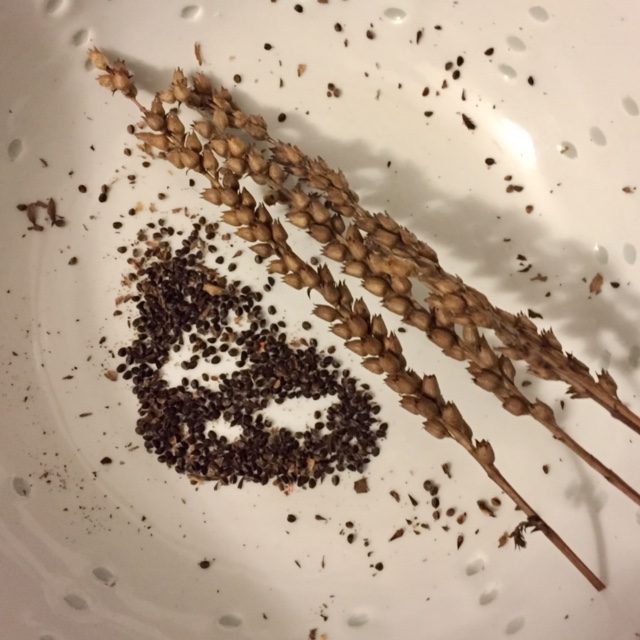|
Obedience (other)
Obedience is a person's tendency to yield to instructions from an authority figure. Obedience may also refer to: * ''Obedience'', an educational film about the Milgram experiment on obedience to authority figures * Obedience, a common name for the plant '' Maranta arundinacea'' * Obedience, a common name for the plant ''Physostegia virginiana ''Physostegia virginiana'', the obedient plant, obedience or false dragonhead, is a species of flowering plant in the mint family, Lamiaceae. It is native to North America, where it is distributed from eastern Canada to northern Mexico. ''Physost ...'' * ''Obedience'' (album), an EP by Swedish black metal band Marduk, released in 2000 See also * Vow of obedience as an evangelical counsel * Obedience training for dogs * Obedience trial, a dog sport {{disambig, plant ... [...More Info...] [...Related Items...] OR: [Wikipedia] [Google] [Baidu] |
Obedience
Obedience, in human behavior, is a form of " social influence in which a person yields to explicit instructions or orders from an authority figure". Obedience is generally distinguished from compliance, which is behavior influenced by peers, and from conformity, which is behavior intended to match that of the majority. Depending on context, obedience can be seen as moral, immoral, or amoral. Humans have been shown to be obedient in the presence of perceived legitimate authority figures, as shown by the Milgram experiment in the 1960s, which was carried out by Stanley Milgram to find out how the Nazis managed to get ordinary people to take part in the mass murders of the Holocaust. The experiment showed that obedience to authority was the norm, not the exception. Regarding obedience, Milgram said that "Obedience is as basic an element in the structure of social life as one can point to. Some system of authority is a requirement of all communal living, and it is only the man dwel ... [...More Info...] [...Related Items...] OR: [Wikipedia] [Google] [Baidu] |
Milgram Experiment
The Milgram experiment(s) on obedience to authority figures were a series of social psychology experiments conducted by Yale University psychologist Stanley Milgram. They measured the willingness of study participants, 40 men in the age range of 20 to 50 from a diverse range of occupations with varying levels of education, to obey an authority figure who instructed them to perform acts conflicting with their personal conscience. Participants were led to believe that they were assisting an unrelated experiment, in which they had to administer electric shocks to a "learner". These fake electric shocks gradually increased to levels that would have been fatal had they been real. The experiment found, unexpectedly, that a very high proportion of subjects would fully obey the instructions, with every participant going up to 300 volts, and 65% going up to the full 450 volts. Milgram first described his research in a 1963 article in the ''Journal of Abnormal and Social Psychology'' [...More Info...] [...Related Items...] OR: [Wikipedia] [Google] [Baidu] |
Maranta Arundinacea
''Maranta (plant), Maranta arundinacea'', also known as arrowroot, maranta, West Indian arrowroot, obedience plant, Bermuda arrowroot, araru, araruta, ararao or hulankeeriya, is a large, perennial plant, perennial herb found in rainforest habitats. Arrowroot flour is now produced commercially mostly in St. Vincent and the Grenadines. Arrowroot was one of the earliest plants to be domesticated for food in northern South America, with evidence of exploitation or cultivation of the plant dating back to 8200 BCE. Description Arrowroot is a perennial plant growing to a height of between and . Its leaves are lanceolate. The edible part of the plant is the rhizome. Twin clusters of small white flowers bloom about 90 days after planting. The plant rarely produces seed and reproduction is typically by planting part of a rhizome with a bud. Rhizomes are ready for harvesting 10–12 months after planting as leaves of the plant begin to wilt and die. The rhizomes are fleshy, cylindri ... [...More Info...] [...Related Items...] OR: [Wikipedia] [Google] [Baidu] |
Physostegia Virginiana
''Physostegia virginiana'', the obedient plant, obedience or false dragonhead, is a species of flowering plant in the mint family, Lamiaceae. It is native to North America, where it is distributed from eastern Canada to northern Mexico. ''Physostegia'' are known commonly as obedient plants because a flower pushed to one side will often stay in that position.''Physostegia virginiana''. Missouri Botanical Garden. The name “false dragonhead” refers to the dragonheads of the related '''', a genus to which the plant once belonged. [...More Info...] [...Related Items...] OR: [Wikipedia] [Google] [Baidu] |
Obedience (album)
''Obedience'' is the third EP by Swedish black metal band Marduk. It was recorded and mixed at The Abyss in December 1999 and released on February 7, 2000. "Obedience" and "Funeral Bitch" were re-recorded for the band's 2001 album, ''La Grande Danse Macabre'' (the former being retitled "Obedience unto Death"). Peter Tägtgren, who mixed the band's previous efforts since 1996's '' Heaven Shall Burn... When We Are Gathered'', was not involved with this recording; instead mixing was handled by Tommy Tägtgren. Peter Tägtgren returned to mixing Marduk's recordings in December 2000 when the band began recording ''La Grande Danse Macabre''. ''Obedience'' was the first Marduk release by Regain Records Regain Records was a Swedish-based independent record label. The label predominantly released death metal and black metal albums. Regain Records was founded from what remained of the former label, Wrong Again Records, by Per Gyllenbäck in 1997 .... Track listing Personnel ;Marduk ... [...More Info...] [...Related Items...] OR: [Wikipedia] [Google] [Baidu] |
Vow Of Obedience
In the Catholic Church, the vow of obedience is one of the three vows of professing to live according to the evangelical counsels. It forms part of the religious vows that are made both by members of the religious institutes and diocesan hermits. Description This is stipulated in *the candidate's respective Church law, for example in the Roman Catholic Church, the 1983 Code of Canon Law (see canons 573, 601, 603.2) *the candidate's respective rule, for example for those that are to be received into a Benedictine Monk, monastic Cenobium, community the Rule of St Benedict (ch. 58.17). The 1983 Code of Canon Law (canon 601) defines it as follows: :"The evangelical counsel of obedience, undertaken in a spirit of faith and love in the following of Jesus, Christ who was obedient even unto death requires a submission of the will to legitimate superiors, who stand in the place of God when they command according to the proper constitutions." [...More Info...] [...Related Items...] OR: [Wikipedia] [Google] [Baidu] |
Obedience Training
Dog training is the application of behavior analysis which uses the environmental events of antecedents (trigger for a behavior) and consequences to modify the dog behavior, either for it to assist in specific activities or undertake particular tasks, or for it to participate effectively in contemporary domestic life. While training dogs for specific roles dates back to Roman times at least, the training of dogs to be compatible household pets developed with suburbanization in the 1950s. A dog learns from interactions it has with its environment. This can be through classical conditioning, where it forms an association between two stimuli; non-associative learning, where its behavior is modified through habituation or sensitisation; and operant conditioning, where it forms an association between an antecedent and its consequence. There are a variety of established methods of animal training, each with its adherents and critics. Some of the better known dog training procedures i ... [...More Info...] [...Related Items...] OR: [Wikipedia] [Google] [Baidu] |

